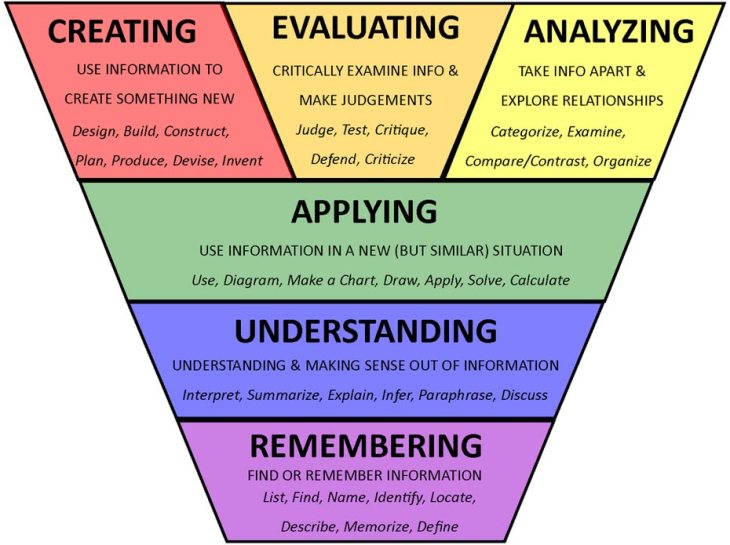A great peer review assignment is open-ended.
A closed-ended question is a closed door. Open-ended assignments are an invitation to think critically and creatively about a topic. There is a time and place in instruction and assessment for closed-ended questions – we need to know what our students can recall and understand before we know they’re ready to move on to higher-order tasks. But the great assignments, the one’s we share with our colleagues and the ones that grow our students confidence, are open-ended. |
| Vice Provost – Carlton University |
A great criteria is singular, challenging, and a bit subjective.
As teachers, we are subject area experts. One of our tasks is to help our students become experts themselves. This means that we must clearly define for them what excellent work looks like. We do this with our assignment criteria. By distilling our assignments down to smaller, bite-sized tasks, we can bring the focus in on one, single criteria. Our instruction and feedback, then, can elevate student work and allow for students to channel their effort into mastering one skill at a time. It’s the classic argument of depth over breadth.When we add a step of formative feedback into the work process, we allow ourselves the opportunity to increase the challenge level of the criteria. We can also make the criteria more subjective, which moves students farther down the path towards being subject-area experts.
Examples
This work has minimal grammatical errors.This example is too rigid and low-level to be of worth using for peer review. Students who can spot grammatical errors easily will get minor practice and students who struggle with grammar will flail. There’s no opportunity for evaluation with this criteria, just opportunity for spotting and counting.
This work establishes and maintains a formal style.This criteria (CCSS.ELA-LITERACY.W.8.1.D, to be precise) is a strong example of a criteria worthy of peer review. Students will have to analyze the writing sample and make an informed judgement. This practice of giving feedback to their peer will help them to develop a better understanding of the assessment criteria and to apply that understanding to their own work. Because this criteria is singular in focus, appropriately challenging. and just a bit subjective, it makes a very strong criteria for peer review.
Partnering an open-ended assignment, a strong criteria, and a rapid peer review tool like Floop’s Flash Feedback is a great way to help students develop feedback literacy. Give it a try and let us know how it goes!
Learning to proofread your work yourself is a must-have skill. But, it always helps to have a second pair of eyes review your work to make sure you haven't missed embarassing typos, or grammatical and syntactical errors. I'd suggest WordsRU.com for this. It also saves you a lot of time to have your work formatted according to the right style. Saves you a lot of time and allows you to focus on your work.
ReplyDeleteAcademic Editing and Proofreading Services
Academic Editing Services
Academic Proofreading Services
Article Editing Services
Article Writing Services
Journal Article Editing Services
Book Editing Services
Book writing Services